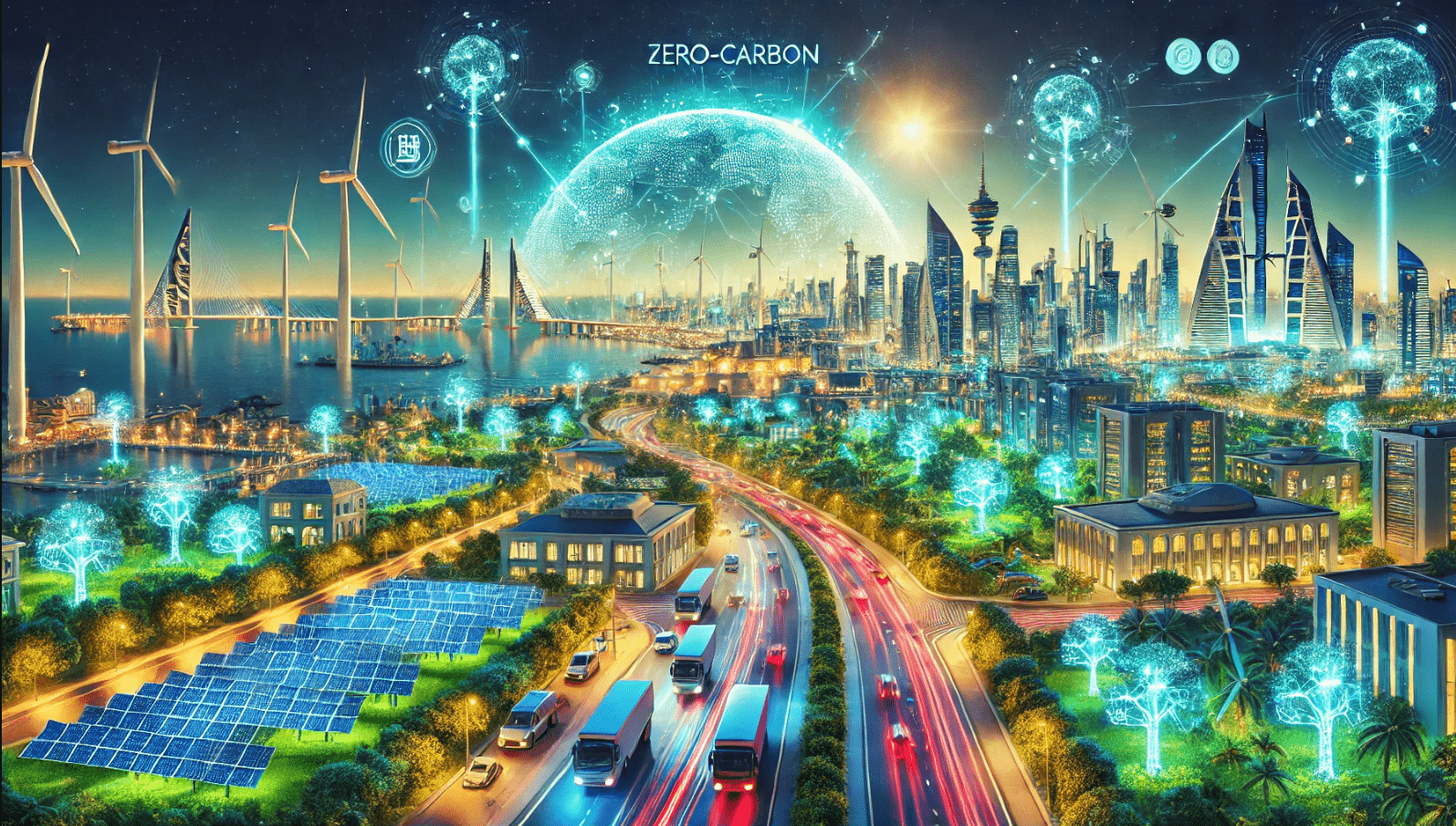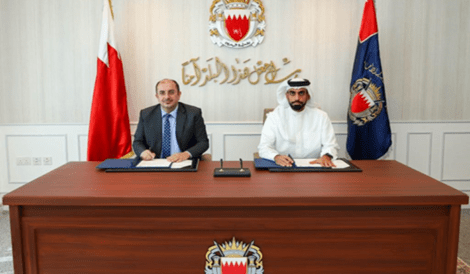مقدمة
Bahrain’s Vision 2030 represents an ambitious framework aimed at establishing a sustainable and diversified economy, with environmental stewardship as a fundamental priority. A key objective of this vision is the attainment of zero carbon dioxide (CO2) emissions, fostering a cleaner and healthier environment for future generations. As global reliance on technology intensifies to address pressing challenges, Artificial Intelligence (AI) has become a pivotal instrument in advancing Bahrain’s aspirations toward carbon neutrality.
Why Zero Carbon is Crucial for Bahrain
Bahrain is especially susceptible to the negative consequences of climate change, such as increasing sea levels, desertification, and extreme weather events, because it is an island nation. To protect the environment, promote economic resilience, and satisfy Bahrain’s international obligations under the Paris Agreement, CO2 emissions must be reduced.
AI: A Revolution in Carbon Neutrality Bahrain is well-positioned to take advantage of artificial intelligence’s potential to address carbon emissions as it transforms sectors globally. Bahrain can hasten its
transition to carbon neutrality by incorporating artificial intelligence (AI) into the foundation of sustainability programs. Here’s how:
1. Smart Energy Management
AI-powered energy systems may improve energy efficiency, minimize waste, and encourage the use of renewable energy sources such as solar and wind. AI can use predictive analytics to estimate energy demand, balance the grid, and effectively manage energy storage systems, assuring clean energy supply while decreasing dependency on fossil fuels.
2. Enhancing Renewable Energy Efficiency
Bahrain is already investing in solar and wind power projects. AI can improve the efficiency of renewable energy systems by anticipating weather patterns, recognizing maintenance requirements, and increasing energy output. Machine learning algorithms can ensure that renewable energy generation is constant and affordable.
3. Sustainable Transportation Solutions
Transportation is one of the largest contributors to CO2 emissions in Bahrain. AI can support the transition to a greener transport sector by enabling smart traffic management, optimizing public transportation routes, and promoting the adoption of electric vehicles (EVs). AI can also analyze EV usage patterns to strategically place charging stations across the country, encouraging wider adoption.
4. Smart Cities for Zero-Carbon Living
Bahrain’s Vision 2030 emphasizes urban development, and AI-powered smart cities can be a cornerstone of zero-carbon living. AI can monitor and reduce emissions in real-time, optimize waste management, and create energy-efficient buildings with automated systems to minimize power consumption.
5. AI in Agriculture and Water Management
Sustainable agriculture and efficient water usage are critical to reducing Bahrain’s overall carbon footprint. AI can optimize irrigation systems, reduce water wastage, and promote precision farming techniques that use fewer resources while maximizing yield.
Steps Bahrain Can Take to Leverage AI for Zero CO2
To maximize the potential of Artificial Intelligence (AI), Bahrain should:
· Invest in AI Infrastructure: Establish data centers, research facilities, and cultivate a skilled workforce to drive AI-powered initiatives.
· Promote Public-Private Collaboration: Partner with technology firms and environmental organizations to embed AI solutions into sustainability projects.
· Stimulate Innovation: Offer grants and incentives to support startups leveraging AI for advancements in renewable energy, sustainable transportation, and carbon capture technologies.
· Establish AI Regulations: Develop ethical and transparent policies to ensure the responsible and inclusive application of AI in achieving zero-carbon objectives.
Conclusion
Bahrain’s Vision 2030 signifies a revolutionary change in the direction of economic diversification and sustainability. Bahrain can become a leader in sustainable and creative development by adopting AI and accelerating its efforts to reach carbon neutrality. Technology and willpower can help Bahrain achieve wealth, resilience, and environmental stewardship in the future. Although achieving carbon zero is a difficult path, Bahrain can make it attainable and motivating with AI as a partner.





